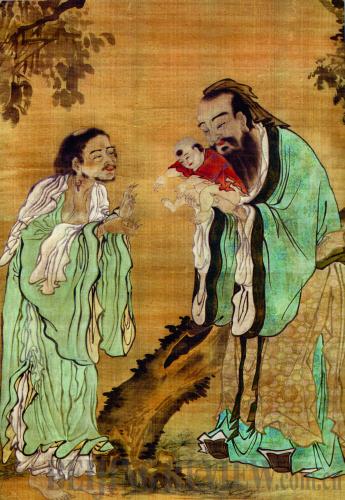|

Over 2,500 years after his death, Chinese philosopher Confucius still exerts great influence in Asia in places like Japan and South Korea. But with more than 500 Confucius Institutes established across the globe, other countries and regions now have access to the man's ideas, and by extension, the Chinese culture.
This past October at the University of Nairobi in Kenya, students playing traditional Chinese lion dancing drums and girls wearing bright red qipao dresses welcomed a Chinese cultural exchange delegation visiting from the great thinker's hometown in Shandong Province.
It marked the first trip to Africa made in honor of Confucius. Co-organized by the China Confucius Foundation (CCF) and China's Xinhua News Agency, it featured a series of exhibitions on Confucius culture featuring books, television, movies, comics and animations. Xu Xianghong, head of the delegation, said that in light of Africa's own long history and traditional culture, a mutual exchange would enhance communication.
Learning about China through its culture
Confucianism continues to influence thinking in China today. His sayings, like "Seeking harmony while maintaining difference," and "Do not do unto others what you would not have others do unto you," are still widely popular. They are a way for other nations to learn about China, perhaps more so than other cultural touchstones like kung fu or traditional medicine. "The personalities and behavior of Chinese people are on full display in Confucian philosophy. Knowing Confucianism leads to an understanding of the values held by Chinese people," said Zhang Bo, Director of the Confucius Culture Communication Center in Beijing.
Language learning opens the door to understanding a culture. Wang Daqian, Deputy Secretary General of the CCF, believes that language and culture are two sides of a coin. "Language provides a way to learn culture whereas culture enriches language. [They] are intertwined and inseparable," he said.
Currently, 21 Confucius Institutes have been set up in 17 African countries. They provide access to Chinese language and cultural education to serve the rapidly increasing demand for African Chinese-speakers as China-Africa cooperation expands in trade, tourism.
|